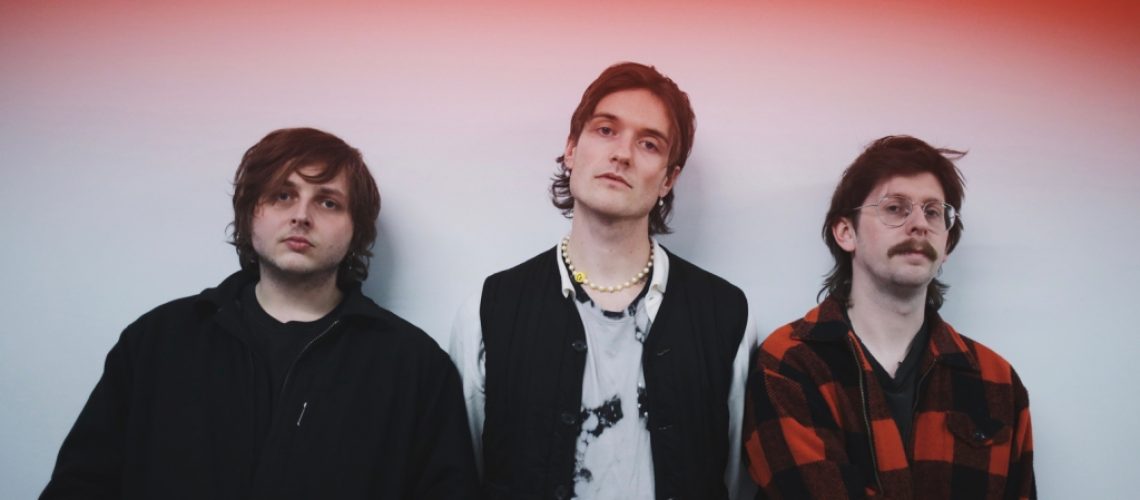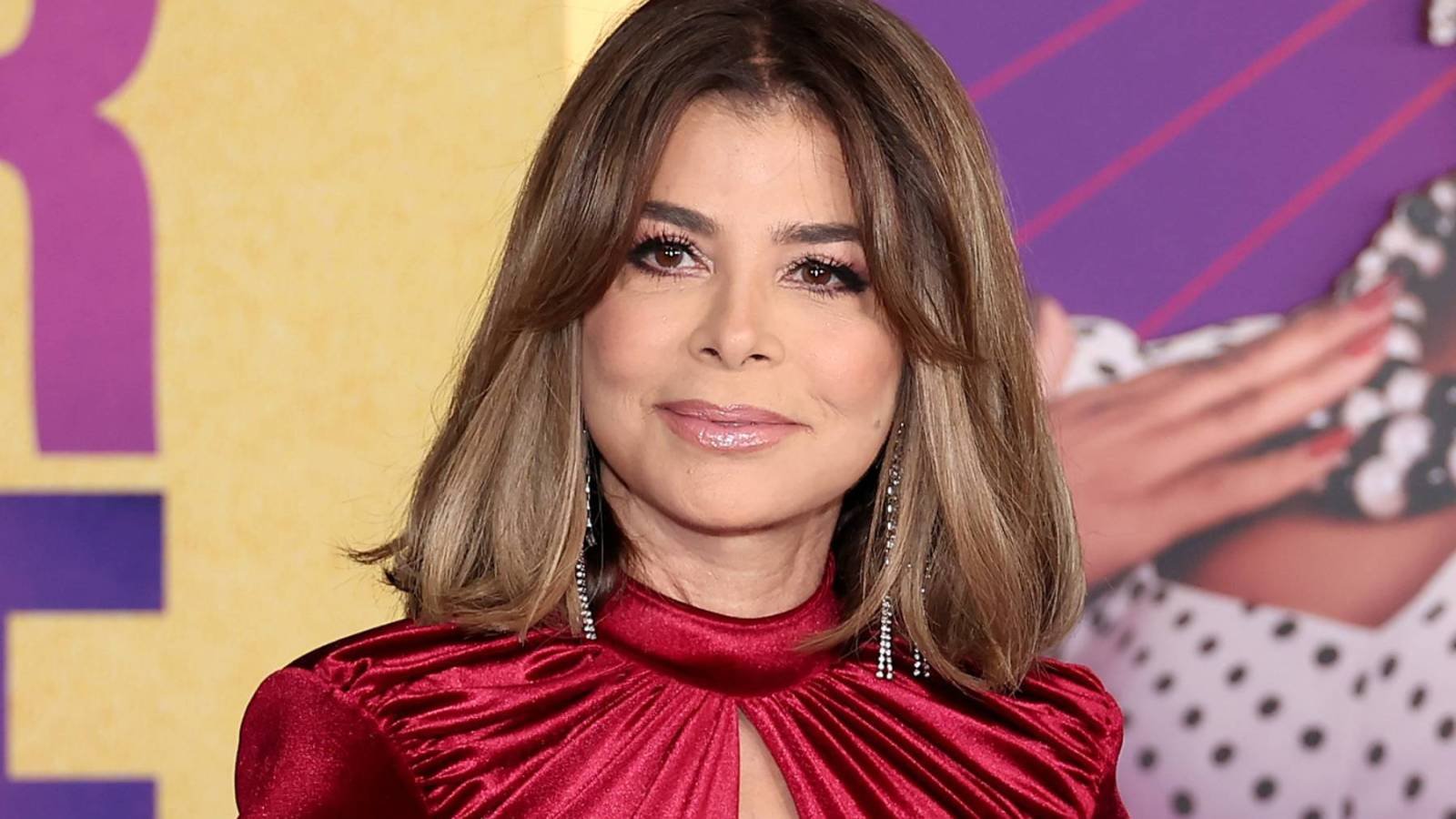Brandon Hagen, lead singer/guitarist of Boston-based alt-rock band Vundabar, has spent the last ten years taking ambiguous existential crises and distilling them into song lyrics. Even so, there are still some things in life that are just too difficult to describe.
“I’m just going to show you,” he tells Billboard from North Hampton, Mass. on a Zoom call, lifting his foot up to the camera and rolling up his pant leg. “It’s just wonky!”
His ankle is exactly that — wonky. Perpetually discolored and bruised-looking, the 27-year-old’s so-called “achilles heel” birth defect is something he was often bullied for growing up. That, combined with being exposed at a young age to the repressed troubles bubbling under his Irish-Catholic, Twin Peaks-adjacent hometown, made for what Hagen calls a very “angsty” adolescence, which he vented into Vundabar’s 2015 album Gawk and its whimsical-but-rage-filled single “Alien Blues.”
That song’s path to success has also been a little wonky. Over half a decade after it was released, its streaming numbers suddenly started increasing by the millions — all thanks to a snippet of it going viral on TikTok seemingly out of nowhere. Click on the “Alien Blues” sound and you’ll find thousands of videos of teens passionately singing along to the lyrics, “My teeth are yellow, hello world/ Would you like me a little better if they were white like yours? I need to purge my urges, shame, shame, shame.” One screams the words at his own red-faced reflection in the mirror, and another punches what looks like the walls of a high school bathroom stall to the rhythm of Hagen’s high-voltage voice.
“The numbers shot up really high,” Hagen recalls of the song’s spike in listeners, which started around Thanksgiving last year. “All of a sudden it was significant, where I think we had 100,000 streaming [plays] a day, and that turned into a million a day in two days.” (As of publishing, the song had racked up 90 million total U.S. streams to date, according to Luminate, formerly MRC Data.)
In the six years between the release of Gawk and the “Alien Blues” boom, Hagen and his bandmates Drew McDonald and Zack Abramo had already put out two whole albums and finished recording another — their latest project Devil for the Fire, which dropped Friday (April 15). He was becoming known for a song he wrote as a teenager — “[TikTok] is just this insane tool…you have to just take it and try to take it gracefully” — but he’d already discovered long ago that there’s a lot more to be angry about than the stuff he felt at 18.
Vundabar’s 2017 LP Smell Smoke, for example, explored the futility of caring for a sick loved one in America’s capitalist healthcare system. And the band’s new horror movie-themed project Devil for the Fire — designed to simulate how reality is as unpredictable and plastic as, say, success earned by blowing up on TikTok — was inspired partly by pandemic life and partly by Hagen’s father’s heart attack-induced stroke and subsequent aphasia diagnosis.
Hagen, however, has decided to take all the recognition funneled by the triumph of “Alien Blues” — no matter how delayed — in stride. “Our records are all slow burns,” he says. “It takes people time to find them and get to know them and pass them around. I don’t care that much anymore. We’ve just always been a band where we plod along and we grow a bit, and we plod along and then we grow a bit, and just keep grinding.”
Below, Hagen talks with Billboard about Vundabar’s new album, pandemic-age touring and the aftermath of going TikTok-viral with “Alien Blues.”
The “Alien Blues” success story is crazy. Out of all the songs in your catalog, why do you think that was the one to blow up on TikTok?
It makes sense to me that a lot of younger people identify with it. I made it and recorded it when I was like, 18. That song is just dealing with a sense of alienation, it kind of just sounds like a meltdown. Being a teen is weird, and being in a time where people need a release and need to blow off some steam – that song has that.
That record in particular had grown its own audience since it’s been out. What was happening with TikTok was just the latest iteration of what had been happening since we put it out.
Which of the TikToks are your favorites?
I’m bad with favorites… I like the ones of kids playing it. I like the way that it kind of is very separate from Vundabar. People are taking the song and making something of their own from it, where it becomes more about them and their experience than about us.
You’ve always released music from your own independent label, Gawk Records. Did major labels start hitting you up once “Alien Blues” took off?
When everything happened with “Alien Blues,” there was a true industry blitz. It’s all driven by metadata, so literally on the same day, every major label in the world was blowing up my phone. It was very confusing and challenging to navigate, especially for a song that is old and part of a catalog we own.
Why didn’t you sign with any of them?
The whole feeding frenzy of majors coming around – it’s just so fast. People are throwing out offers and it’s around the virality of this song. And if that should drop, then that offer could radically change.
I’m not opposed to labels, and there are certain benefits to majors in particular. If we wanted to do that, I’d want to do it in earnest with a new record – like, “Okay, Vundabar’s gonna make their weirdo pop record.” If we want to go make a big pop record, we will – which, I think we will – but if you’re going to make a slow-burn concept record where you need to listen for 40 minutes, that’s probably not what a major can help out on.
You’ve been touring on and off. How is that going? Do you think the indie live music scene is starting to recover from the financial strain of the pandemic?
Everyone who’s touring again is kind of taking the temperature right now. The nerves are gone a little bit. People are like, “Alright, it’s time to get on with life.” It puts people in this really bizarre position – you could be lined up touring for 30 to 40 days and any day in, someone could get COVID and the rug’s pulled out. Earning a living in music’s always been precarious, and now it’s just more so.
We’re just a live band at our heart. It’s been so long with COVID, I forgot something was missing from my life. The thing in music is there’s a murkiness to what you do. When you’re making records and songs, it’s all in your head. Touring is grounding, because it’s very much physical and external. It tempers the more “thinky” side of it.
You made your late night debut recently. How was playing “Alien Blues” on Seth Meyers?
That was wacky. I was like, “You have two and a half minutes to not f–k up, don’t f–k up.” But the upside of us making our late night debut with a song we’ve been playing for seven years is it would be pretty hard to mess it up.
Is it weird promoting a seven-year-old song at a time when you’d normally be focusing solely on pushing the new record?
There’s a part of me that could fixate on that, but I don’t want to be bitter about people coming into our music.
One thing that was nice about this song off Gawk and this new record is we recorded both of them with the same engineer at the same studio. And it was the first time we’d been back since we made that record. So aesthetically, production-wise and process-wise, it was very much aligned with “Alien Blues.” In a way, the [new] record was a return to form.
How is Devil for the Fire different from your previous four albums?
It has the most range. There are some of the most fragile songs on here. There’s a yacht rock song. “Devil for the Fire” is the heaviest song we’ve ever made. “Heatwaves” is kind of like a zombie rising in a small town and then just terrorizing the town.
There’s a dream logic to it. Things just happen, images are presented to you. You don’t question why one thing happens after the other in a dream, which, I feel like that was the last two years. In life and in the world, I was questioning reality, like, “How the f–k is this real?”
Do you think any of that same angst from “Alien Blues” has carried over to the new record?
No. I would be alarmed if I was 27 and felt the same way that I felt when I was 18.
Listen to Vundabar’s new album Devil For the Fire below:




